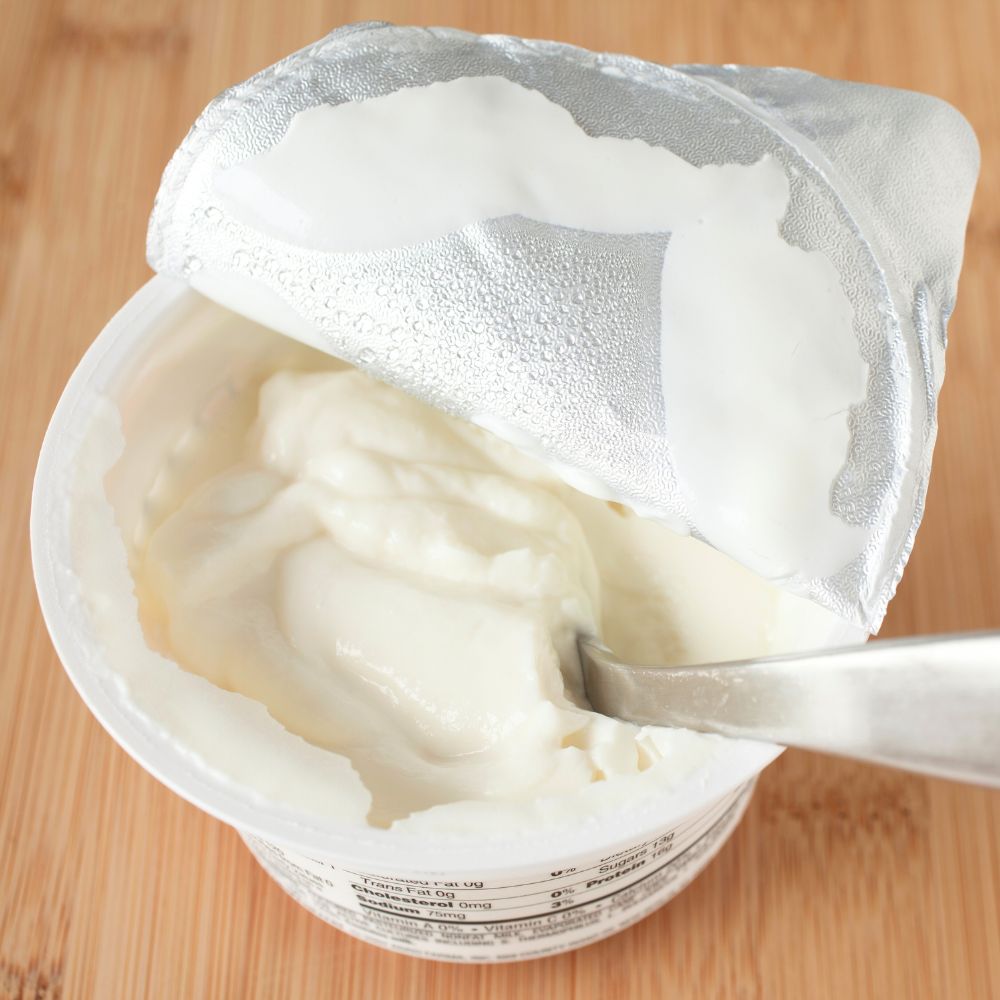Here’s a list of effective food substitutes for whey protein powder, including their protein content, reasons why each is a good alternative, and any necessary cautions.
1. Greek Yogurt
- Protein Content: About 10 grams per ½ cup.
- Why It’s a Good Alternative: Creamy, versatile, and packed with probiotics that support gut health. It enhances the texture of smoothies and baked goods.
2. Cottage Cheese
- Protein Content: Approximately 14 grams per ½ cup.
- Why It’s a Good Alternative: High in protein and low in fat, cottage cheese has a mild flavor that blends well in both sweet and savory dishes.
3. Silken Tofu
- Protein Content: Around 5 grams per ½ cup.
- Why It’s a Good Alternative: A great plant-based option, silken tofu is low in calories and provides creaminess, containing all nine essential amino acids.
4. Pea Protein Powder
- Protein Content: About 15-20 grams per scoop (30 grams).
- Why It’s a Good Alternative: Hypoallergenic and suitable for those with dairy allergies, pea protein has a good amino acid profile and mixes well in smoothies.
5. Hemp Protein Powder
- Protein Content: Roughly 10 grams per 3 tablespoons.
- Why It’s a Good Alternative: Contains healthy omega-3 and omega-6 fatty acids, making it nutritious. Its nutty flavor complements various recipes.
6. Chia Seeds
- Protein Content: About 5 grams per 2 tablespoons.
- Why It’s a Good Alternative: Rich in fiber and omega-3 fatty acids, chia seeds also absorb liquid, thickening smoothies and recipes effectively.
7. Flaxseeds
- Protein Content: Approximately 3 grams per 2 tablespoons.
- Why It’s a Good Alternative: High in fiber and omega-3s, ground flaxseeds add nutrition and can easily be incorporated into smoothies and baked goods.
8. Nut Butters
- Protein Content: About 7 grams per 2 tablespoons (varies by type).
- Why It’s a Good Alternative: Rich in healthy fats, nut butters enhance flavor and provide protein in smoothies and energy bites.
9. Quinoa
- Protein Content: Around 4 grams per ½ cup cooked.
- Why It’s a Good Alternative: A complete protein, quinoa is excellent for vegans and vegetarians, adding a nutty flavor and unique texture.
10. Oats
- Protein Content: About 6 grams per ½ cup (dry).
- Why It’s a Good Alternative: Oats provide protein and fiber, adding bulk and texture to smoothies and baked goods.
11. Egg Whites
- Protein Content: Approximately 6 grams per ¼ cup (liquid).
- Why It’s a Good Alternative: Lean source of high-quality protein with no fat.
- Caution: Raw egg whites can pose a risk of salmonella contamination. To reduce this risk, consider using pasteurized egg whites, especially when adding to protein shakes.
Conclusion
These alternatives to whey protein powder provide diverse options for enhancing your protein intake while accommodating different dietary needs and preferences. With the added caution regarding raw egg whites, you can explore these substitutes safely and enjoy a variety of flavors and textures in your meals.

